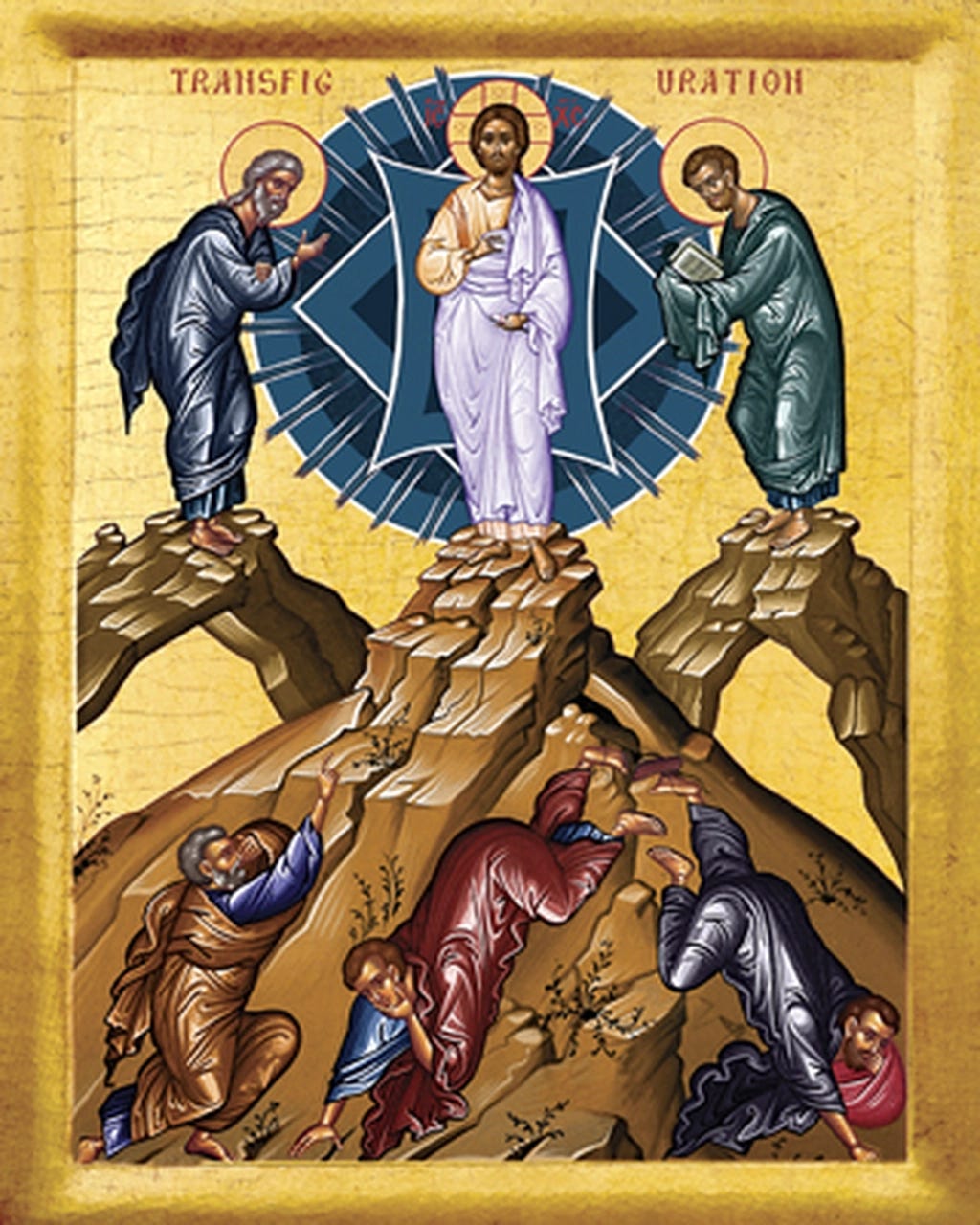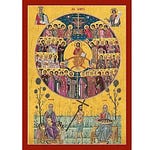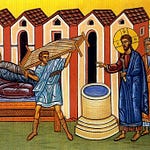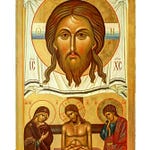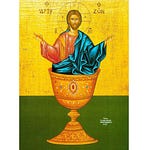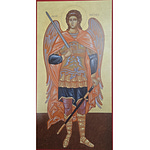[Note: the audio recording above will vary in places from the prepared text below. Also, much of the substance of this homily in indebted to Aidan Hart and his insights on the Transfiguration from his book, FESTAL ICONS.]
The Transfiguration of Jesus was certainly an event that left an indelible mark upon Ss Peter, James, and John. With respect to S. Peter, in addition to what we heard in our Epistle reading, he wrote about the Transfiguration later in his Second Epistle. He wrote: “Christ’s divine power has granted to us all things that pertain to life and godliness, through the knowledge of Him who called us to His own glory and excellence, by which He has granted to us His precious and very great promises, that through these you may escape from the corruption that is in the world because of passions, and become partakers of the divine Nature.”
Peter teaches the Church that as we are able to escape from the corruption in our heart which happens because of “passions” (this a technical, biblical word which means bad spiritual habits, and our ungodly addictions) – that as we are able to escape from our bad spiritual habits and addictions, we are able to become partakers of the divine Nature: we are able to participate in the fullness of Jesus Christ, the fullness of both His humanity and His divinity. Peter knows this because He along with James and John were eyewitnesses of Christ’s majesty, in prayer with Christ as they climbed the mountain, in prayer with Christ as they beheld His appearance revealed as dazzling white and accompanied now by Moses and Elijah, in prayer with Christ as they heard the voice of Majestic Glory name Christ as the Father’s Son, and in prayer with Christ in the descent down the mountain. When we are able to overcome our passions, partaking of the divine nature becomes our reality as it became reality for these three Saints.
And what is transfigured, is us: our eyes transfigured to behold the truth. The blinding light of Christ was always part of Christ’s nature, always of Him. During most of His time in human flesh, Christ’s blinding divine light was hidden within His humanity. Christ instead wanted His words to speak for themselves and for people to follow the truth because it was the truth. Instead of blinding light, Jesus used other means to draw people to Himself: acts of love, miracles of healing, the wisdom of His words and teaching, His forgiveness and forbearance that released people from bondage. Yet underneath it all, and always underneath it all, from His Conception and Nativity through His Resurrection and Ascension, is His blinding light, the light that shone upon the face of Moses on another holy mountain, this light is part of the essence of Christ, His essence which is divine: invisible to the eyes of the flesh, gloriously illuminating to the eyes of the heart.
While I have preached previously about how the four parts of the Transfiguration (the ascent, the dazzling light, Christ alone, and descent) are recapitulated in the four parts of the Mass (Entrance Rite, Liturgy of the Word, Liturgy of the Eucharist, and Concluding Rite), I want to reflect today on the mountain specifically the climbing of the mountain by the three disciples with Christ. What is the theological significance of this? Christ could have revealed Himself anywhere; but He chose a mountain for His transfiguration. And He made the disciples climb the mountain, rather than putting them on some kind of “divine elevator” to whoosh them to the top in a moment. He did not do that; rather, He made them climb up and climb down. Why?
I see three intentions. Firstly, to teach the importance of human effort in the Christian life. As revelation was given to Moses after his effort in climbing the mountain, and likewise to Peter, James, and John, participation in the fullness of Christ requires each individual’s active effort in his or her relationship with God. The Father has already accomplished in Christ what all people are invited to become. Fulfillment only awaits each person’s “Amen,” that is, their freely willed participation: freely willing effort. We say our Amen through the sacramental and communal life of the Church, including what the Church calls “asceticism;” the effort to overcome our passions (bad habits and addictions) and thereby regain the likeness of God given to Adam and Eve but which is defaced through sin. We say our Amen as our lives become more of a cooperation with grace, and cooperation with the life of virtue given in Christ. We work on ourselves, to replace passions with virtues so as to cleanse our heart and allow us to see.
Secondly, to teach that following Christ must be what is most important in our life. If we are trying to climb a mountain, and we are not focused on the mountain, we will not make it to the top; likewise, if we desire to partake of the divine nature, but we do not make Christ our number one in life, a full partaking of the divine nature will not happen. This also bespeaks the very personal nature of true knowledge of Christ. The fullness of Him is only experienced in the heart; this is why all God wants is the human heart. As when a mountain is climbed, all else tends to disappear, so it must be with God if we seek true relationship with Him through Christ; through offering our heart as living sacrifice.
Finally, Christ’s intention with the mountain is to emphasize that in this life, we cannot remain on the mountain forever. In this life, the mountain must be descended. Partaking of the fullness of Christ demands returning to the world of darkness and sin – descending just as we are dismissed from Mass to God and blessed the Lord through our words and deeds. We are to return full of light. Our faces are to shine with the glory of God as we are in the world, that the Holy Spirit may shine through us and light up the world of darkness and sin with the glory of Jesus Christ. But unlike Moses, who veiled his face when he was among the crowd, we are to live with our faces unveiled, our faces being faces of love, of compassion, of humility, of attention: faces of increasing virtue that not only allow the Holy Spirit to robustly dwell in us, but accept God’s invitation to be ambassadors for Christ: that God makes His appeal through us to the world: that we in this parish church may each Sunday descend the mountain after Mass to bless the Lord in our words and deeds so that we, being ourselves eyewitnesses as well of Christ’s majesty mighty boldly and authentically proclaim unto the world that Jesus Christ is truly the brightness of the Father. Amen.


